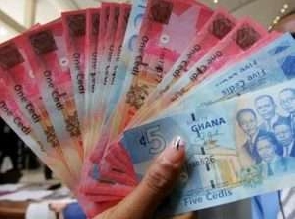Associate Professor of Finance at the University of Ghana Business School (UGBS), Prof. Godfred Bokpin says the cedi’s appreciation to major currencies is not driven by economic fundamentals.
The Ghana cedi’s surge against the dollar has brought some form of relief to the Ghanaian business community as government has been lauded for the move.
However, speaking to Starr News, the Economist said the move is unsustainable since it is not based on cogent economic indicators.
“The cedi thrives on technical causes as well as sentiments. So when the sentiment is positive and good the cedi feels okay, but what we can see in the last two weeks is that there is a lot of clarity in terms of Ghana’s economic direction. There is clarity now with Ghana’s debt situation and that debt restructuring is unavoidable even if it’s uncomfortable.
“It is good that you bring the market up to speed. Now the 2023 budget has also brought some form of clarity in terms of the way forward. More importantly, the past week we’ve been talking about whether the Staff-Level Agreement is possible before Christmas. All of these things working together moderate the economic uncertainty. When it happens that way, the positive sentiment reflects on the market,” Mr. Bokpin added.
He continued “That is why we are saying that when you are managing an economy, it is not so much about the technical economy, but the expectations. You have to anchor the expectation along a certain direction and it’s good for the economy. Because in August the cedi lost more than 20 percent on its value purely on speculation.”
Mr. Bokpin further explained that now that expectations on the market have been dealt with there is some stability.
But he cautioned: “People think that with the Staff-Level Agreement the three billion dollar is going to hit the account of the government like next week. To the extent that its cedi sustainability is not driven by economic fundamentals you cannot say that it’s going to last for long.”
Business News of Monday, 19 December 2022
Source: starrfm.com.gh













